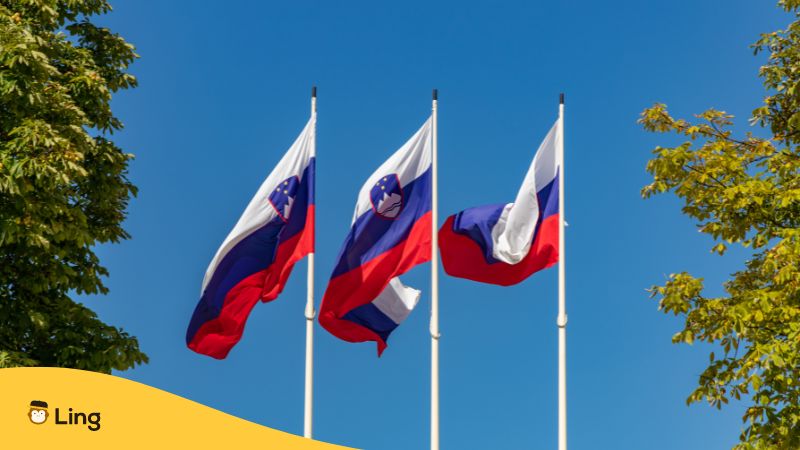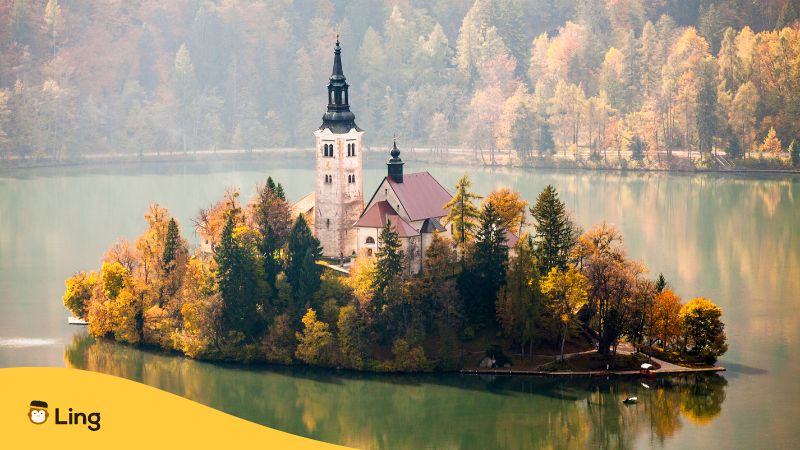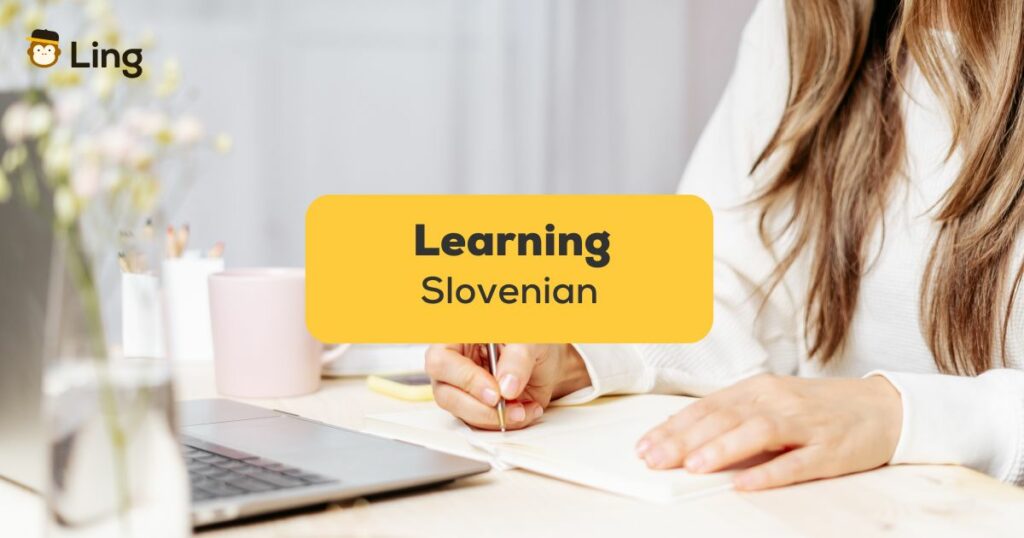There are several reasons why someone might want to learn Slovenian Maybe because they’re moving to Slovenia for love, to connect with their family and heritage, or because they simply think the country is beautiful! Learning the language won’t come overnight, but in the end it will be worth it. It may all seem like gibberish at the beginning, but I promise you, with a bit of persistence, you can get there!
In this blog post, we’ll be discussing how long does it take to learn Slovenian. So, keep reading to find out the best ways to excel in your language learning as fast as possible. Let’s go!
Table Of Contents
How Long Does It Take To Learn Slovenian?
Let’s get straight to the point. It’s hard to say precisely how long it takes to learn the Slovenian language, as it really depends on each person. Generally, it usually takes around 6 to 12 months to be able to have basic conversations. Becoming fluent can take several years of dedicated studying. Still, with daily practice and exposure to the language, this time can become shorter.
If you follow the right steps and keep yourself motivated, you can become fluent faster! Up next, I’ll present techniques and tips that learners can follow to learn Slovenian more quickly.
Understand The Complexity Of The Slovenian Language
Is the Slovenian language hard? That depends on different factors, and we’ll go through them:
Linguistic Features Of Slovenian
Slovenian or Slovene language is a language with its own unique features within the family of Slavic languages.
First off, Slovenian uses the Latin alphabet, even when the Slovenian alphabet has some additional letters like č, š, and ž. Similar to other European languages, Slovenian has a tough grammar with many rules. For one, it uses cases, which means that words change endings depending on their role in a sentence.
Verbs change a lot too, based on who is doing the action and when it’s happening – past, present, or future. Also, the language has three grammatical genders for nouns: masculine, feminine, and neuter.
What’s more, Slovenian has a special form for when there are exactly two of something. For example, English has one pronoun for ”us”, whereas Slovenian has mi for groups of more than two, and midva for a group of two people.

Pronunciation Challenges
Slovenian can come with pronunciation challenges that may make it a bit harder to learn. I’m talking about vowel sounds and consonant combinations. Take the word hrček (hamster) for example – this can be tough to say because of the tricky consonants stuck together.
If you’ve moved to Slovenia to a certain region where the dialect is heavy, this may prolong your learning since there are different ways to speak Slovenian depending on the region. You may hear many variations of how words are pronounced! Practice Slovenian accent with native speakers, listen closely, and pay attention to make things easier.
Still, Slovenian may take less time to learn for those who are familiar with these particular linguistic features in their own language or another language that they have been learning.
What Affects Learning Speed?
Everyone moves at their own pace, and that is perfectly fine. Taking small steps each day can also mean huge progress for some! However, there are always some factors that affect how fast someone can learn Slovenian.
Prior Language Knowledge And Similarities
If someone already knows another South Slavic language, such as Croatian or Serbian, they will probably find it easier to learn Slovenian because of the many similarities in vocab and grammar.
On the other hand, if your native language is very different, like Chinese or Arabic, it will take you a bit longer due to fewer similarities.
Other than that, if you’re an avid language learner who’s been into learning new languages for a while, then you might also pick it up faster because you understand the techniques and strategies for learning a new language better.

Immersion And Practice Opportunities
The more you’re exposed to a language, the faster you’ll learn! If you’re in an environment where Slovenian is regularly spoken, then you can practice and immerse yourself more often. Learning different ways to speak Slovenian is necessary as is writing, listening and reading in Slovenian. This will for sure help you solidify your understanding and remember the language better.
Motivation And Learning Techniques
What motivates you to learn? Even at times when you think it might be too hard or not worth it, always remind yourself why you began!
Think about using efficient learning techniques like breaking it down into more manageable chunks, repetition, flashcards. This will all enhance learning speed and comprehension!
Strategies To Make Learning Slovenian Quicker
Learning a foreign language takes time, effort, and planning. In this part, I’ll give you some tips and smart ways to speed up your learning, from using language tools to diving into Slovenian culture.
Learning Resources
In this day and age, resources for learning a language are endless. Think about language learning apps for Slovenian, websites, textbooks, language exchange communities, podcasts, and audiobooks.

Setting Goals And Milestones
Your learning process shouldn’t overwhelm you. Start slow, with numbers and certain words and then master a specific grammar concept separately.
According to the Common European Framework of Reference for Languages (CEFR), there is a six-point scale from A1 for beginners, up to C2 for those who are fully proficient in the language. Don’t jump over, and only go further when you’re sure you’ve mastered your current level!
Maybe you can reward yourself for reaching milestones to maintain motivation and celebrate achievements, whether it’s treating yourself to something special or taking a break to relax.
Cultural Immersion
I can think of several ways to dive deep into Slovenian culture. Find people who speak the language well through groups on social media, or local meet-ups to chat and get advice. Get into real Slovenian life by watching movies, listening to songs, reading Slovenian literature and watching Slovenian media. Go to cultural events, parties, and shows about Slovenia to learn more about their habits and way of life.
Learn More Quickly With Ling!
And here’s one last pro tip for you: Language learning doesn’t have to be hard. In fact, it should be fun! If you agree, then the Ling app is the perfect solution for you! With Ling, you’ll learn Slovenian words and phrases through fun techniques like games and quizzes, and speed up your learning process even more! And if you’re learning to speak Slovenian, check out the Slovenian blog to learn more about the Slovenian language and culture.



































































